Understanding chess rules Normal Worksheets for Ages 4-7
5 filtered results
-
From - To
Explore our engaging "Understanding Chess Rules Normal Worksheets" designed specifically for children ages 4-7. These fun and interactive activities teach young learners the fundamental rules of chess in an accessible way. Through colorful illustrations and simple instructions, kids will learn about the board setup, piece movement, and basic game strategies. Our worksheets promote critical thinking, problem-solving, and patience while enhancing cognitive skills. Perfect for homeschooling or classroom use, these resources help foster a love for chess from an early age. Encourage your child's strategic thinking and creativity as they dive into the exciting world of chess with our tailored worksheets!
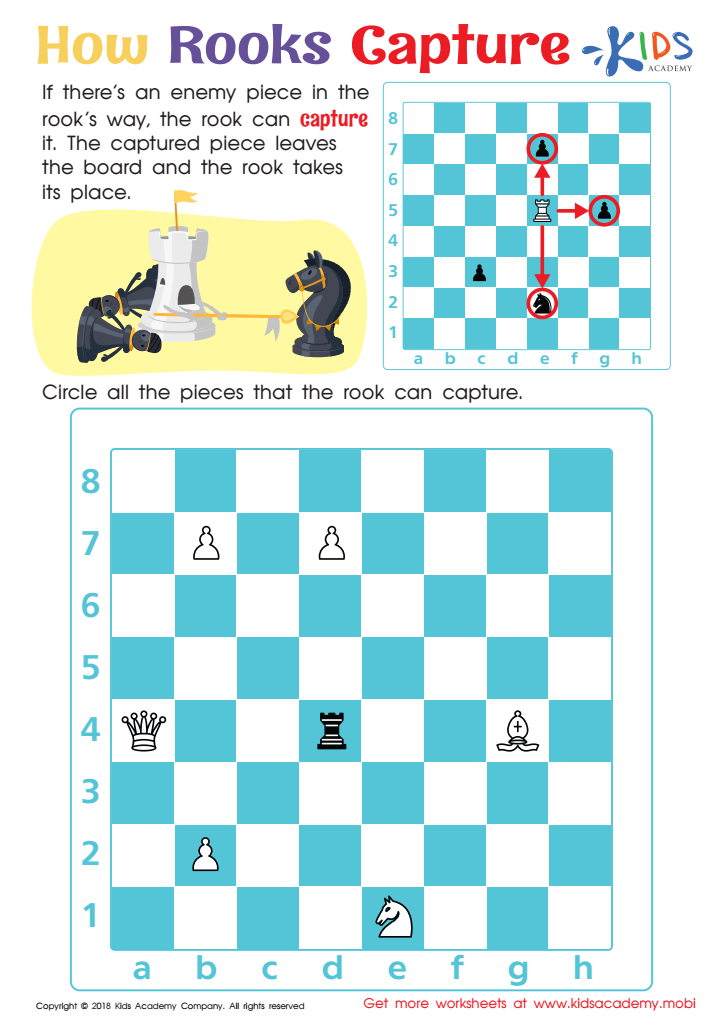

How Rooks Capture Worksheet
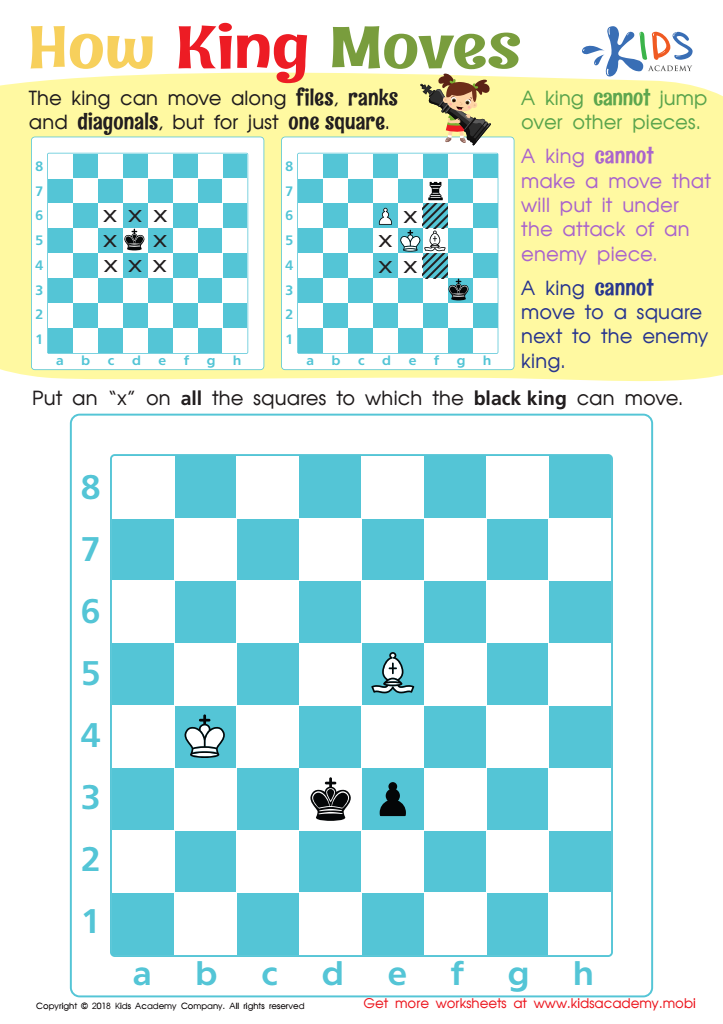

How King Moves Worksheet
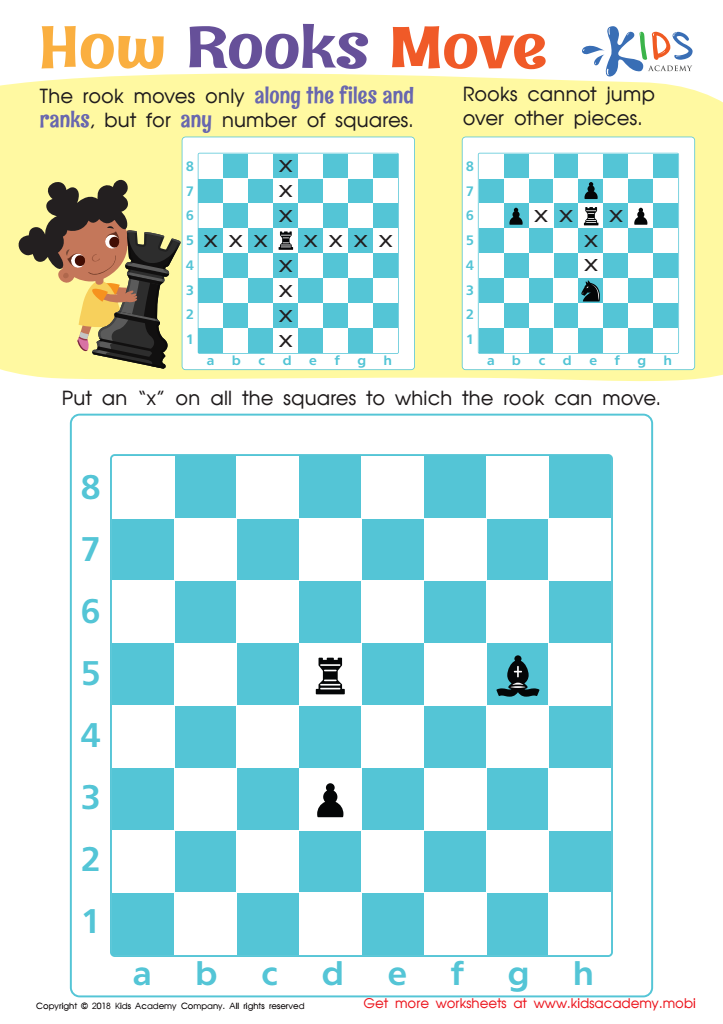

How Rooks Move Worksheet
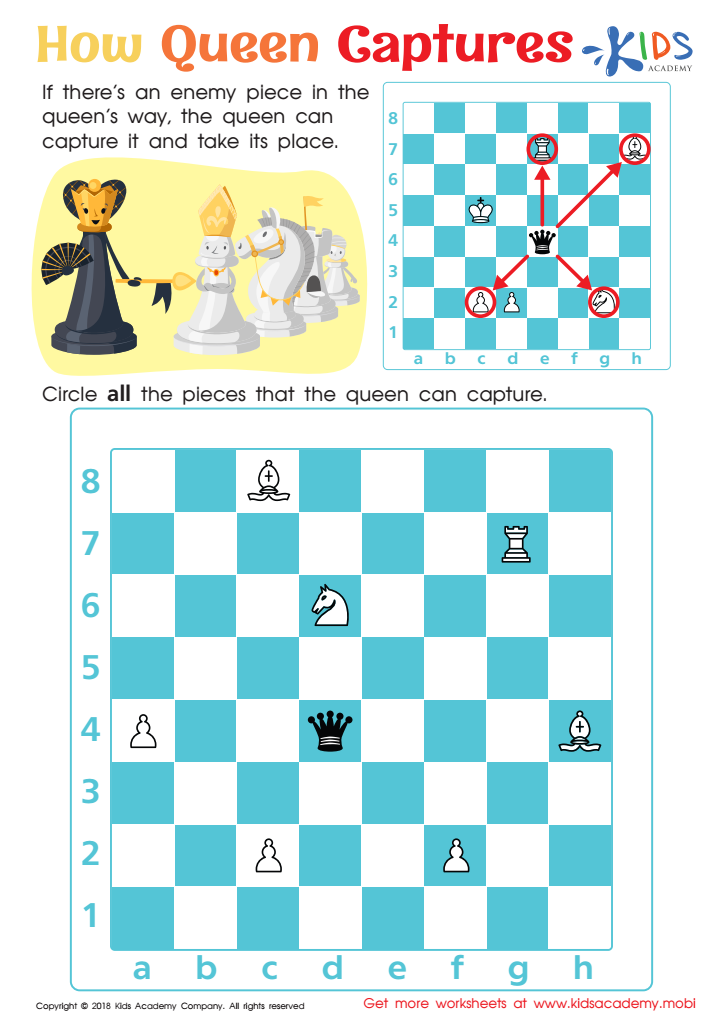

How Queen Captures Worksheet
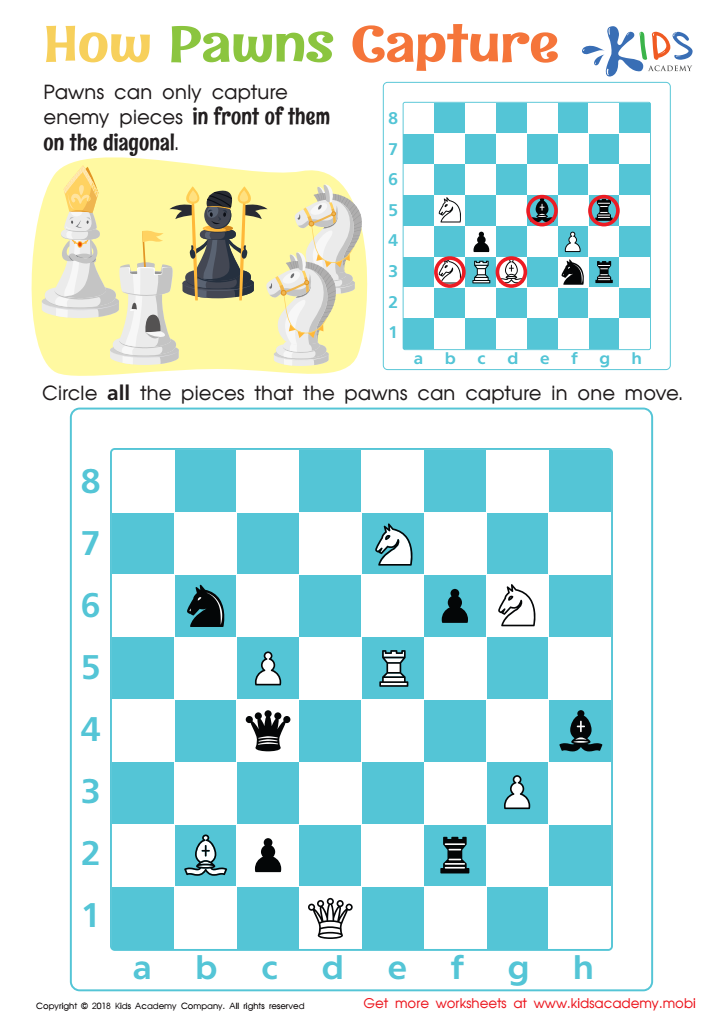

How Pawns Capture Worksheet
Understanding chess rules is vital for parents and teachers working with children aged 4-7, as it fosters critical cognitive and social skills at an early age. Chess enhances critical thinking, teaching kids how to plan, strategize, and anticipate consequences of their actions, which are foundational skills not just for games, but for life.
Furthermore, learning chess promotes patience and discipline. Young players must learn to think before making moves, understanding the rules and the nature of turns—essential mechanisms that help them grasp broader concepts like sharing and turn-taking in social situations.
Engaging young children in chess also stimulates creativity and problem-solving abilities. The game introduces them to various scenarios that challenge their imagination while developing their ability to think outside the box.
Additionally, vibrant chess stories emphasize fairness and respect for opponents, encouraging values such as good sportsmanship.
For teachers and parents, it provides an excellent opportunity for bonding, focusing not just on teaching the mechanics of the game, but living experiences that foster collaboration, resilience, and mutual respect. Overall, while the game is fun and intellectually stimulating, its longer-term benefits in cognitive, social, and emotional development should not be overlooked.

 Assign to My Students
Assign to My Students


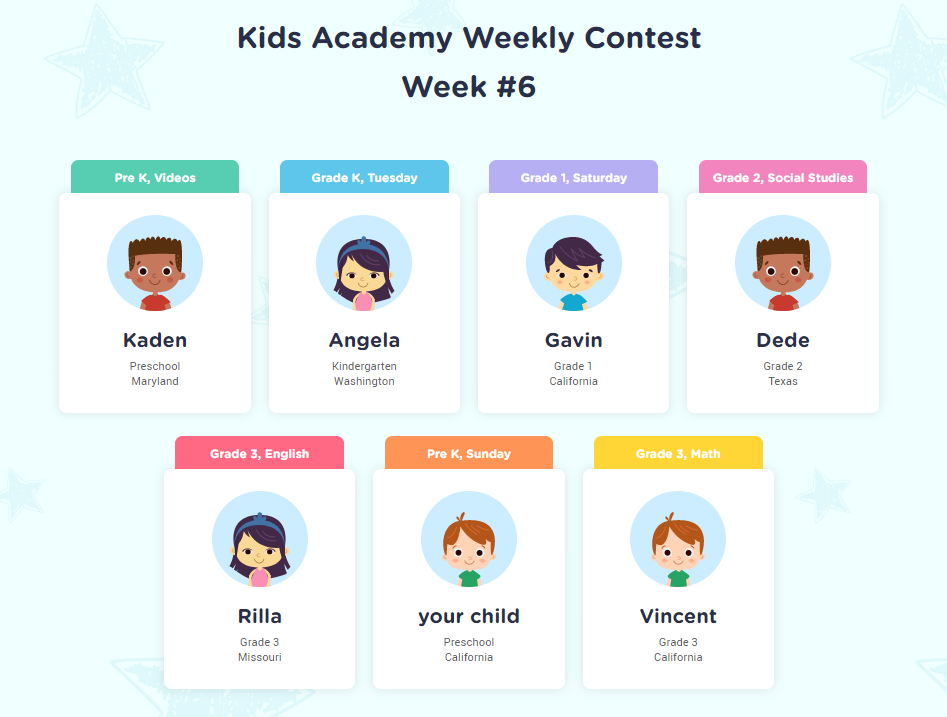




.jpg)








